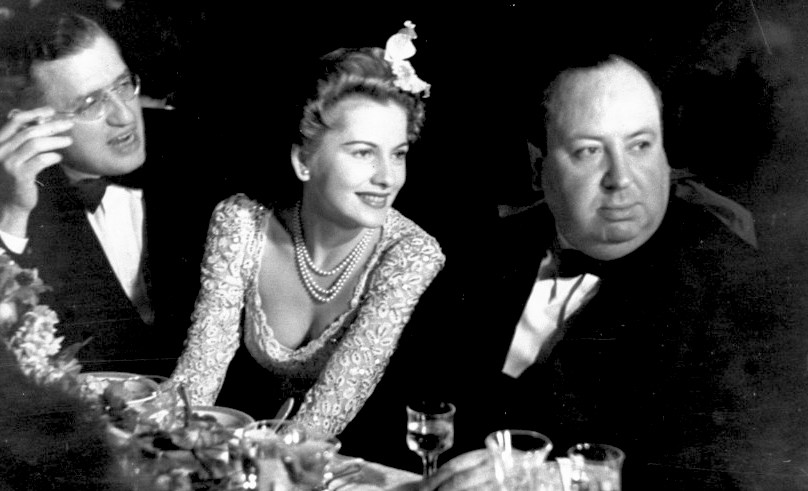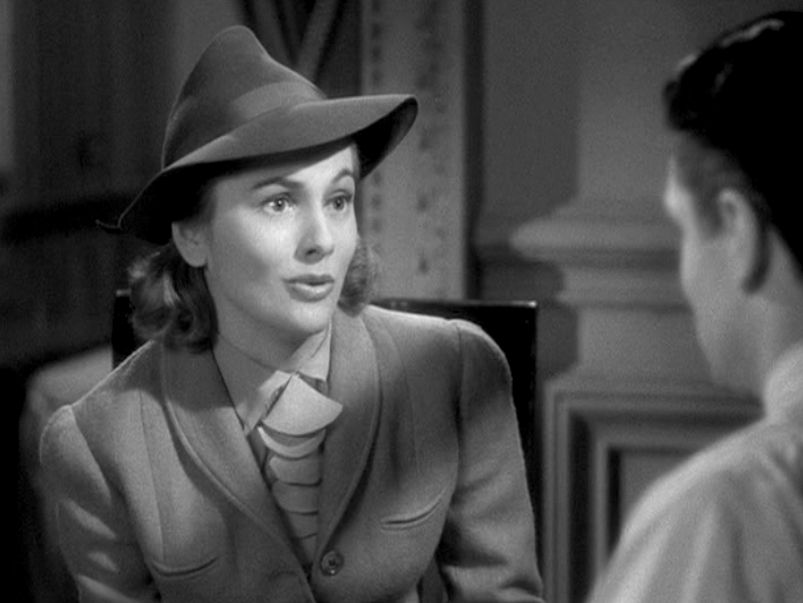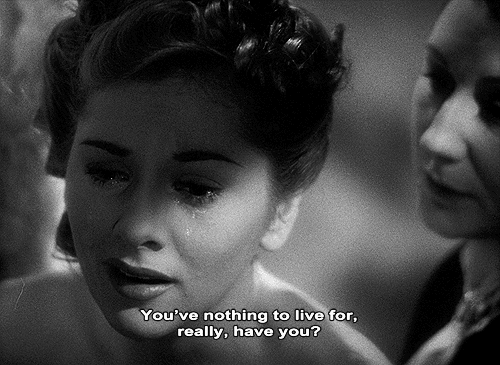For the next few days we'll be celebrating Joan Fontaine's Centennial. Here's Eric on her most famous picture...
 David O. Selznick, Joan Fontaine, and Alfred Hitchcock at the Oscars for Rebecca. The film won... but Fontaine and Hitch didn't.
David O. Selznick, Joan Fontaine, and Alfred Hitchcock at the Oscars for Rebecca. The film won... but Fontaine and Hitch didn't.
One of the best things about writing for The Film Experience is the chance to open up windows of your film history you haven’t explored before. For some reason, throughout all the years, I had never seen a movie with Joan Fontaine. Just one of those black holes. And because she stopped acting before I was born, I have zero frame of reference for her (unlike, say, sister Olivia de Havilland)...
Fontaine stars in Alfred Hitchock’s 1940 Best Picture winner, Rebecca, and she’s a light (and alight, from within). She plays the new wife to rich baron Maxim de Winter (Laurence Olivier), who moves into his mansion Manderley, which is full of memories of Maxim’s first perfect wife, Rebecca. Fontaine’s character (no name is ever given) finds herself tortured by Manderley’s creepy housekeeper (played to the hilt by Judith Anderson) and the memories of her predecessor.

Rebecca remains ravishing, ridiculous, and compelling. Hitchock commits fully to the tale’s gothic flourishes, and the film is an excellent example of many early-Hollywood conventions (deep fades, rack focus, etc.) executed perfectly, with purpose and flair. He directs Olivier to deliver work both specific and ambiguous, filled with surprising comic touches and lovely melodramatic notes. I’m certain more than a few term papers must have been written about the lesbian overtones of Anderson’s character and performance… it all seems a little uneasy to watch in this day and age, but she’s in deep, and she’s fun to watch for sure.
But the movie belongs to Fontaine, and she’s quite touching. The first half hour of the picture lives almost in romantic comedy territory, and Olivier’s courtship of her allows Fontaine to lay the groundwork for a strong arc. Fontaine doesn’t overplay “everygirl” and she shows us her character’s shyness and awkwardness, as well as her fear that she’s not strong. She’s just “nice” which is what draws Olivier to her. But we see her character get smarter and tougher throughout the piece, in a gradual way that feels true. Fontaine has a light touch in the first portion of the picture, which becomes more effective when we see her turn on the darkness in the latter half. Her character becomes a full person during the course of the film, and Fontaine makes you root for her without being cloying.

Fontaine is also devastatingly beautiful in Rebecca, with a perfect movie-star face made for black and white photography. While her acting has some old-school extravagance to it, she’s never histrionic: there’s a purity to what she’s doing in the film, a clear love of her character and a smartly-calibrated journey. Seeing Fontaine for the first time in this film made me hungry to see more of her. Was this her best performance, or I am in store for even better treats ahead?